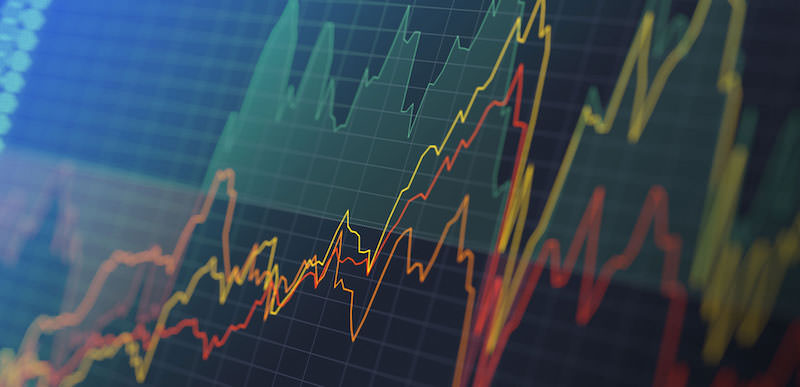When Not to Trade: 3 Times to Avoid Trading
November 24, 2021

When Not to Trade? It seems like an odd question. After all, the goal is to invest and profit. Yet, there are cases when it's better to stop, suspend trading activities, and wait for the storm to pass.
In this article, we delve into the topic, describing the cases in question and explaining the reasons that justify the temporary suspension of activities.
Why Are There Cases When It's Better Not to Trade?
First of all, it's important to explore the theme of suspending activities. A topic that might surprise some, especially beginners. After all, the collective image of a trader portrays them as a professional capable of handling all problems, who always has the situation under control or at least strives to have it. Well, it's a stereotype fueled by movies and novels. A trader is first and foremost a person, and as such, they can face difficulties, experience confusion, and fall prey to uncertainty.
These eventualities, among other things, go hand in hand with certain market dynamics. The market itself is a heterogeneous and complex entity, difficult to fully comprehend. Despite being dominated by structural elements that give it a certain degree of "knowability," it often produces completely unexpected events that require extra effort from traders.
In short, difficulties are not lacking, so it's perfectly normal for a trader to occasionally decide not to face them and let "the night pass."
That said, we can answer the question: when not to trade? When should you avoid placing orders?
Extreme Volatility
One of the situations in which a trader should think twice before investing capital is the phase of extreme volatility. For many reasons, sometimes unpredictable, the market can "go crazy" and produce larger and more frequent price oscillations than usual.
The chart takes on the appearance of a rollercoaster, where the asset's trend is unclear. Such phases usually explode in periods of uncertainty, caused by an unexpected event and the entrance of an element capable of "splitting the market." It's no coincidence that if the asset is inherently "calm," phases of extreme volatility are nothing more than settling phases.
What to do in these cases? The boldest and most prepared traders grab an imaginary surfboard and challenge the waves. In the best-case scenario, they profit from the oscillations, turning a moment of danger into an opportunity. In the worst-case scenario, they lose money, a lot of money.
The more prudent traders would do better to stop. The reason is simple: when volatility explodes, some rules are broken. The practice of analysis, both technical and fundamental (but especially technical), becomes less effective or at least more difficult to carry out.
Therefore, there's nothing wrong with stopping for a while and waiting for the market to return to a state of calm (as much as possible), and there's nothing wrong with that.
During an Event with an Uncertain Outcome
Many rely exclusively on technical analysis. In other words, they look for all the elements useful for setting up a trade in the chart. It's not an odd approach, also because the dogma that "prices discount everything" has a basis in truth. This approach is somewhat reassuring, as it focuses on numbers, and numbers rarely deceive those who know how to analyze and use them. In certain cases, however, the rules are broken, and prices move based on what happens outside the market, which is not reported or represented by the chart.
This occurs, for example, when an event is taking place that will have some repercussions on the asset (demand side or supply side), and the outcome of that event is uncertain. The issue of uncertainty is fundamental: if the outcome were predictable, investors would discount it well in advance.
An example? When a central bank meeting and the subsequent press conference are underway, and the bank has not given any indication of the decisions it is about to make. In general, central banks are quite talkative before meetings, precisely to avoid moving the markets too much. However, it can happen that the decisions are not discounted, that there is no clear consensus on the measures to be adopted, and therefore, until the last moment, investors are not clear about what will happen.
Well, the market overreacts in those moments - as in many others with similar dynamics, e.g., OPEC meetings. It can go up, or it can go down; in any case, it's difficult to make sense of it, and false signals are just around the corner.
Again, reckless or incredibly prepared traders can venture hypotheses with a certain degree of certainty and therefore engage even in the most turbulent and uncertain moments. Normal traders, and even more so beginners, prefer to wait.
When the Trader Is in a Terrible State
It may simply happen that the trader is going through an unproductive period. For example, they may feel tired or not lucid, not quite able to face the uncertainties of the market. They may be coming from a series of defeats. They may simply manifest confusion about the events that are unfolding.
There's nothing inhuman about underperforming. After all, not even experienced traders are robots, capable of always expressing the same level of effectiveness. In these cases, even to unplug and regain mental energy, the trader takes a break, usually a small one, and avoids trading for a while.
A Clarification
We conclude with an important clarification: every trader is different; every trader is unique. There is a wide variety of styles and approaches. Some traders are able to navigate well in uncertainty, while others feel the need for a safer environment. Therefore, the situations we have described may be less tolerable for some and more manageable for others.
So, before making any decisions about the temporary suspension of trading activity, review your feelings and analyze what you are experiencing. In the end, the question of when not to trade is entirely personal.




